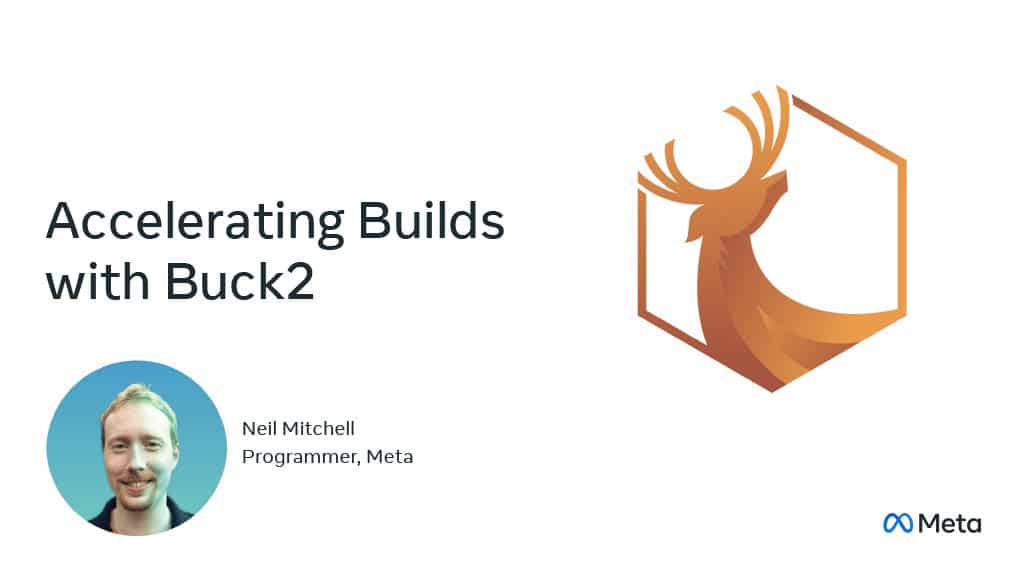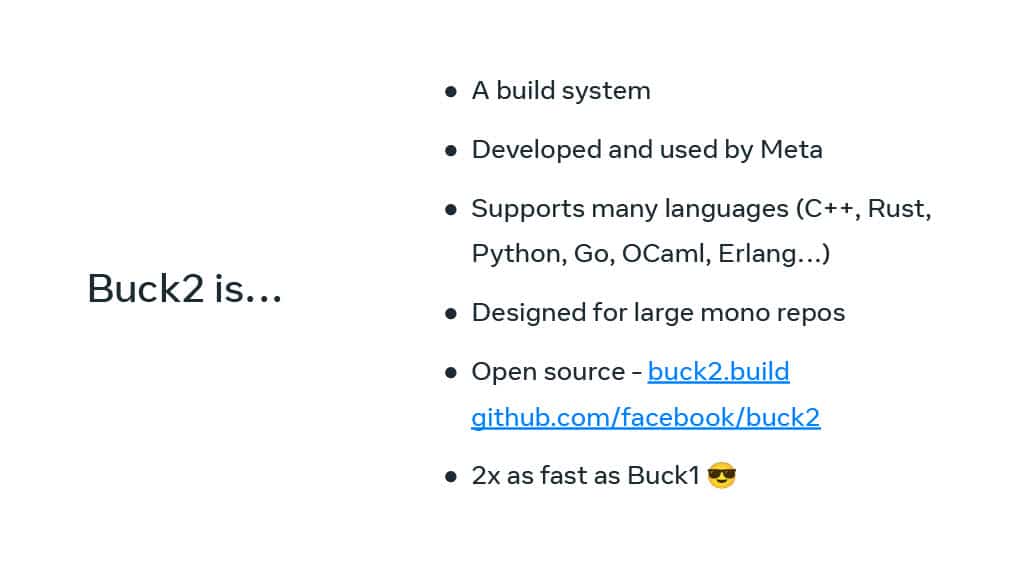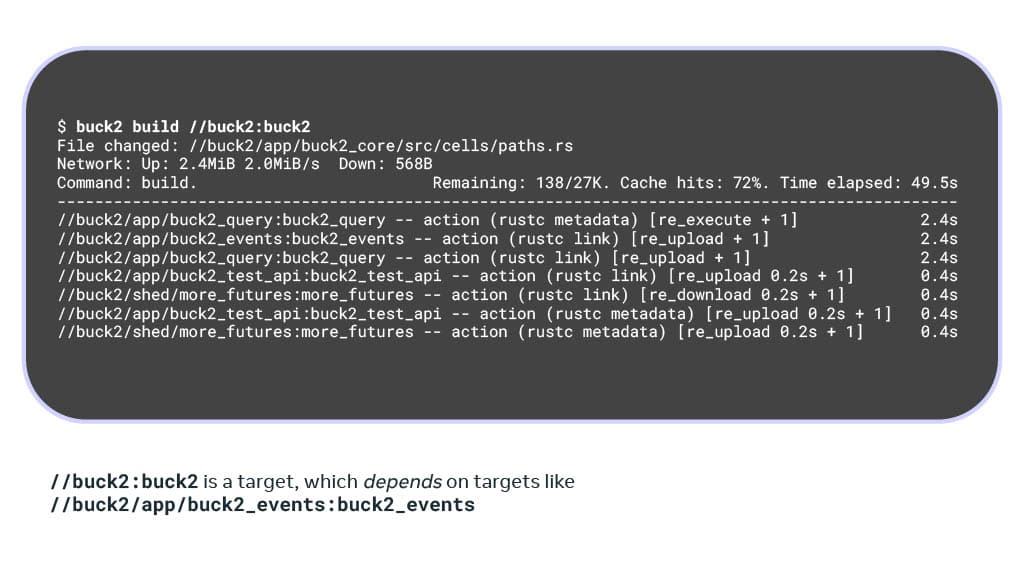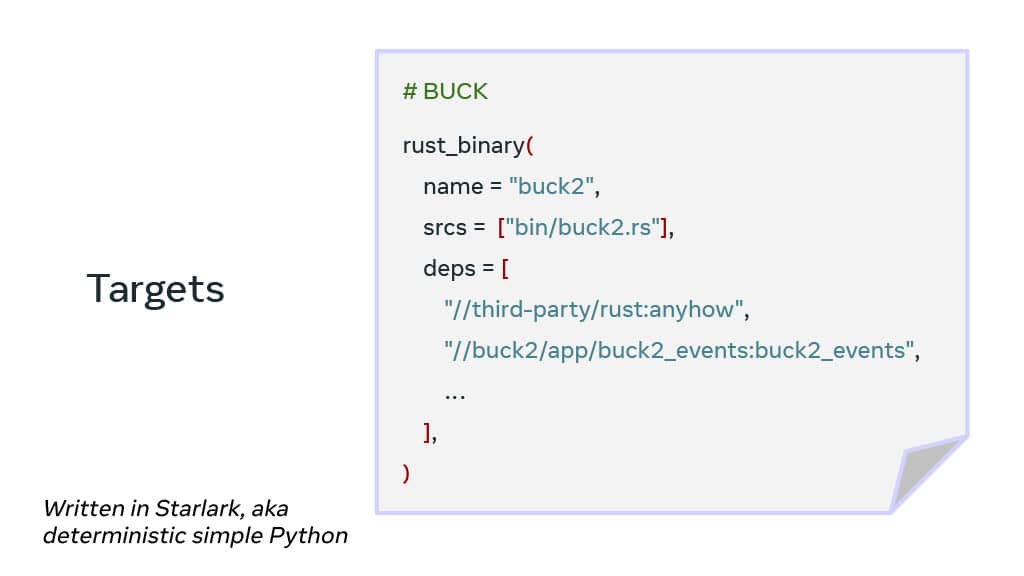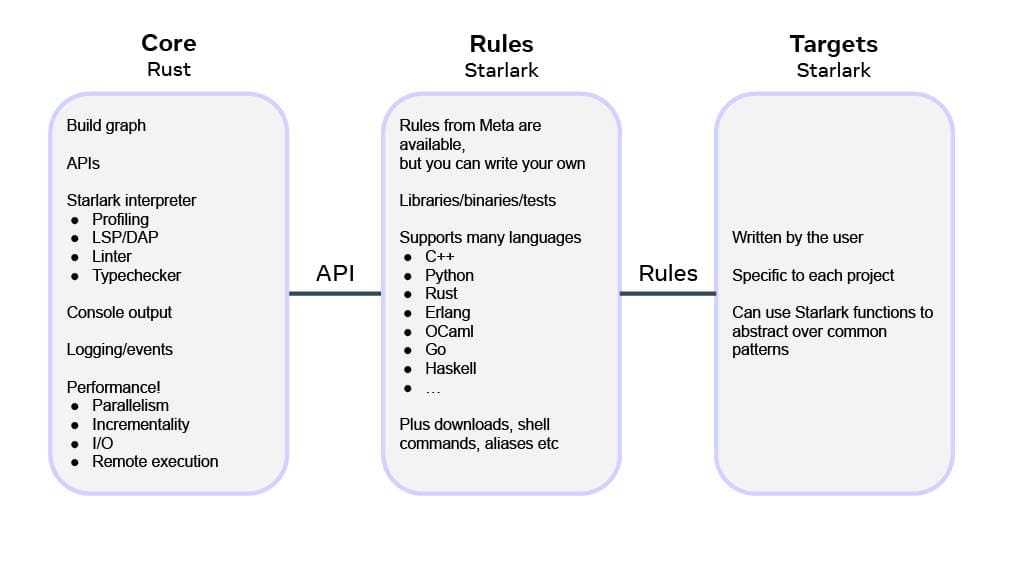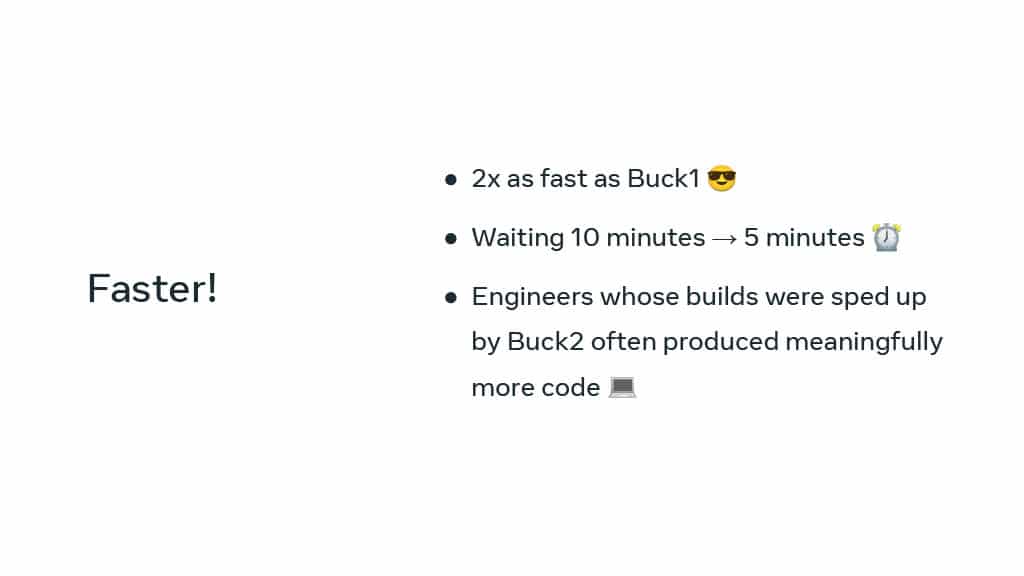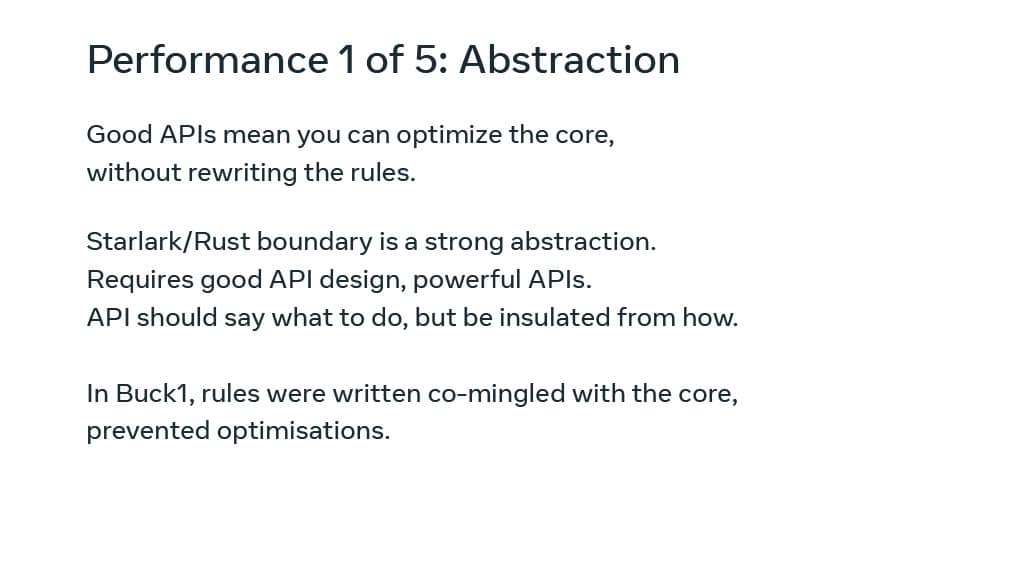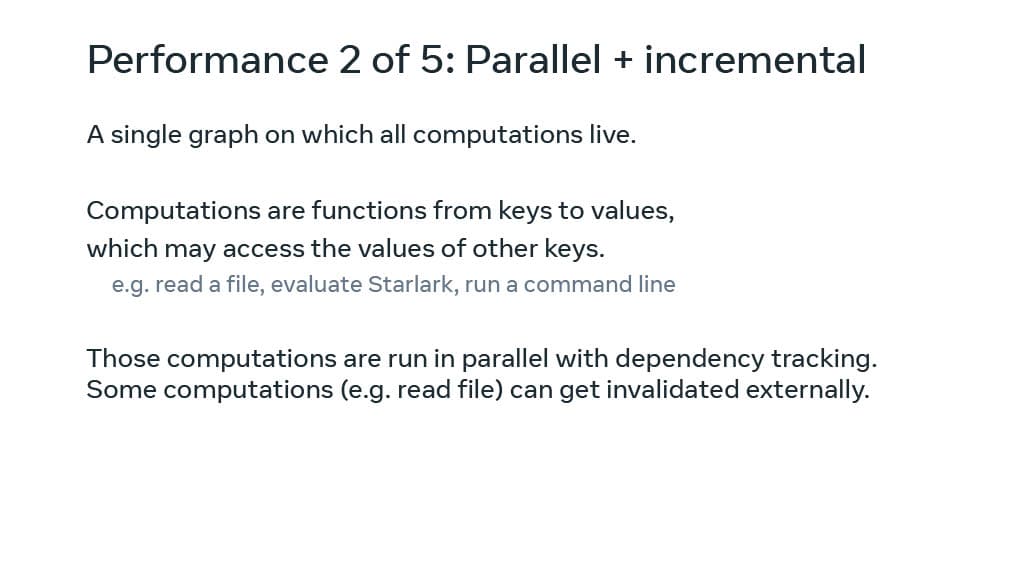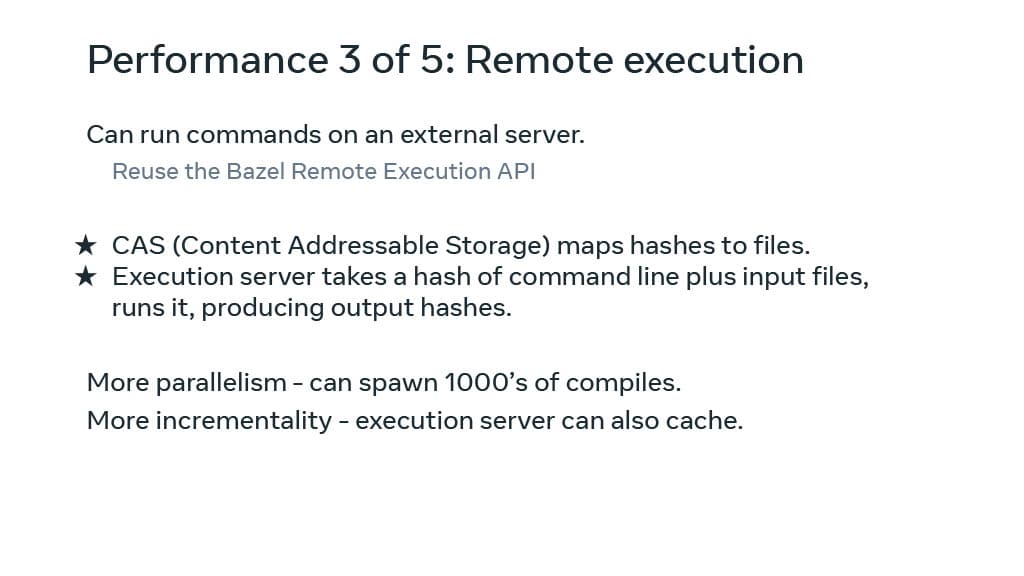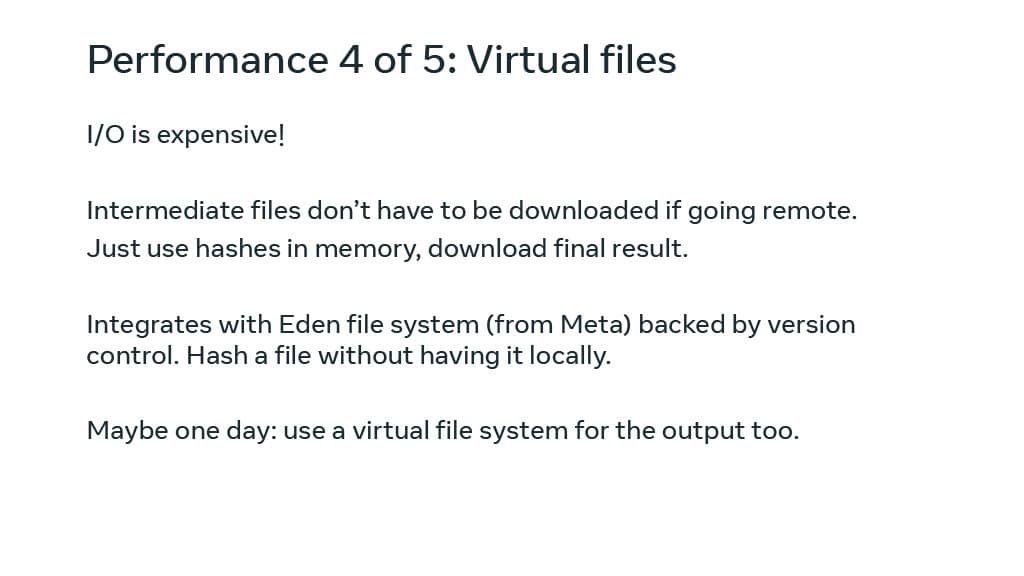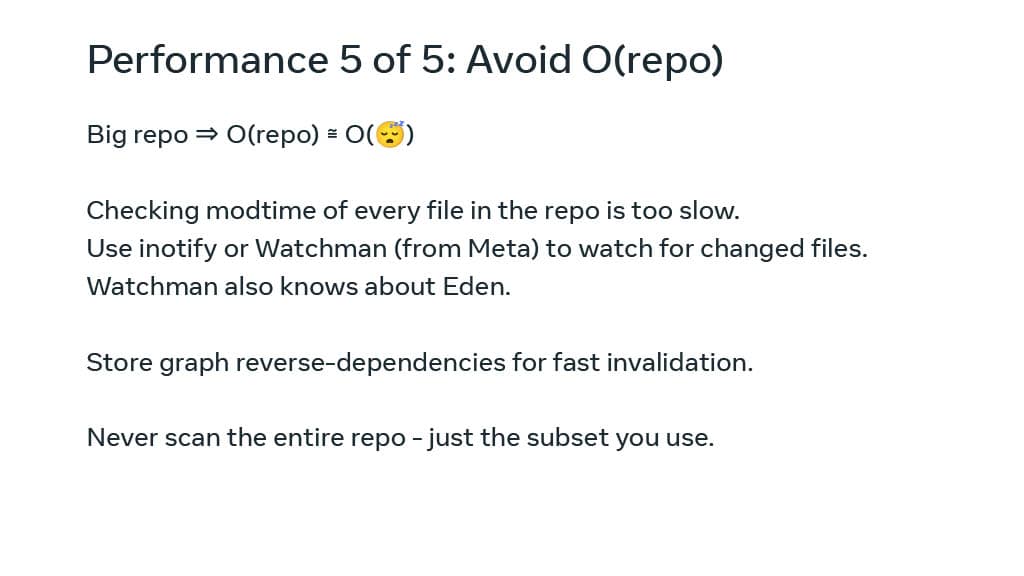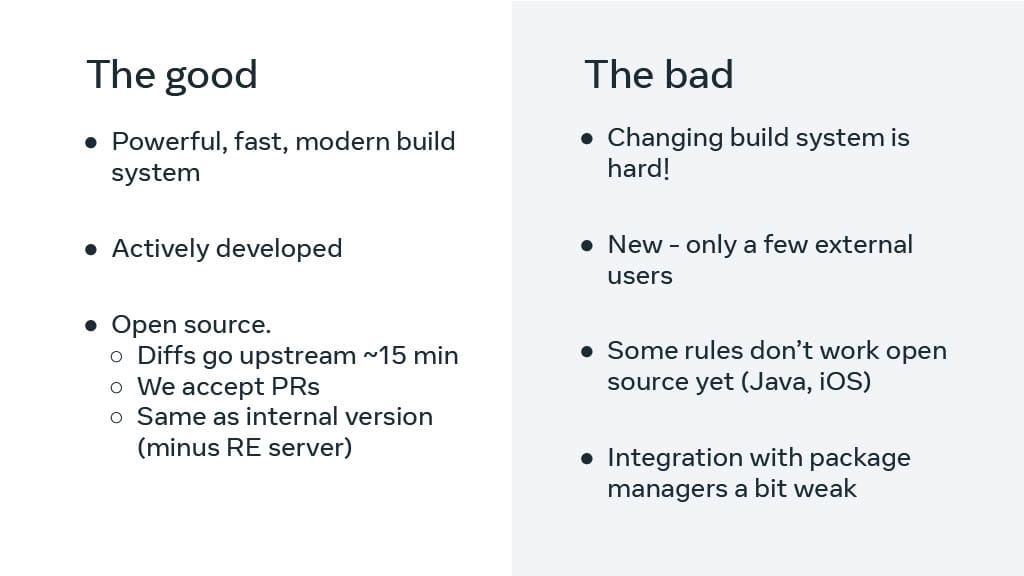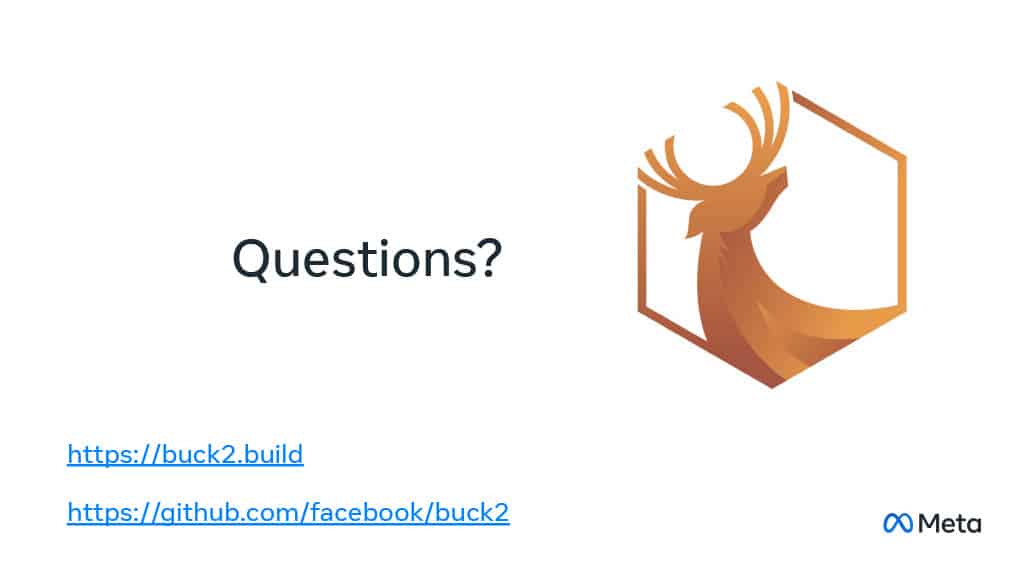
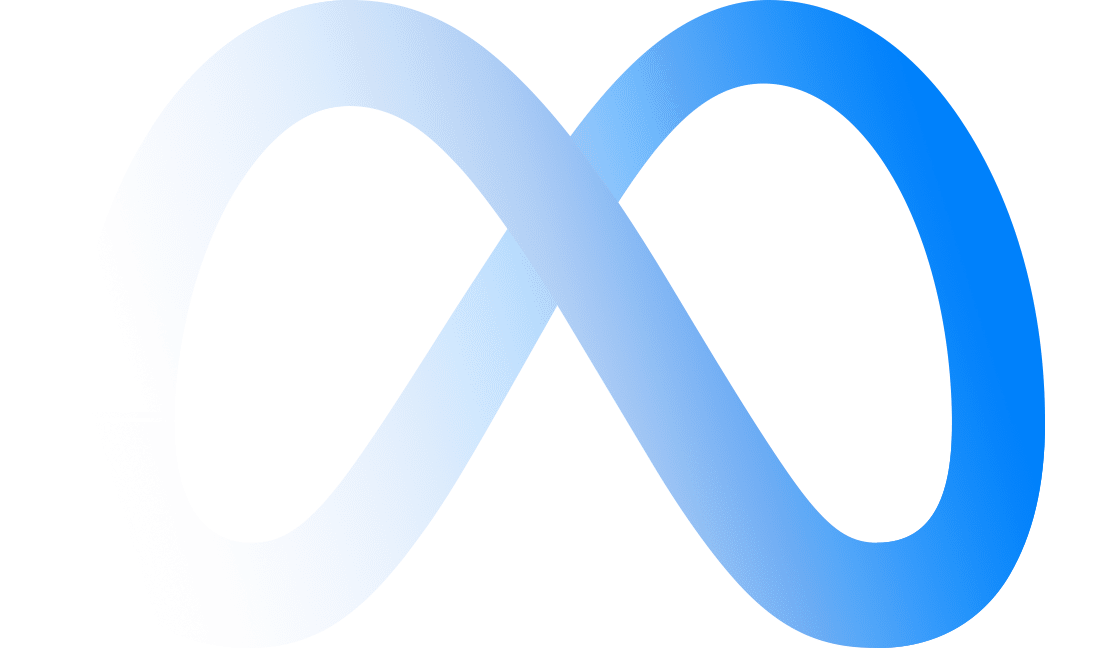
Neil Mitchell
Programmer
Meta
Accelerating Builds with Buck2
Summit Producer's Highlight
Neil at Meta describes developer productivity using one of Meta’s internal build tools, Buck 2. He discusses performance improvements made since Buck 1, new features like abstraction through APIs, parallel and incremental compute, remote execution, and the use of virtual files to improve developer productivity.
Summit Producer's Highlight

About the session
Neil at Meta describes developer productivity using one of Meta’s internal build tools, Buck 2. He discusses performance improvements made since Buck 1, new features like abstraction through APIs, parallel and incremental compute, remote execution, and the use of virtual files to improve developer productivity.
Watch the video 


 127k+ subscribed
127k+ subscribed






